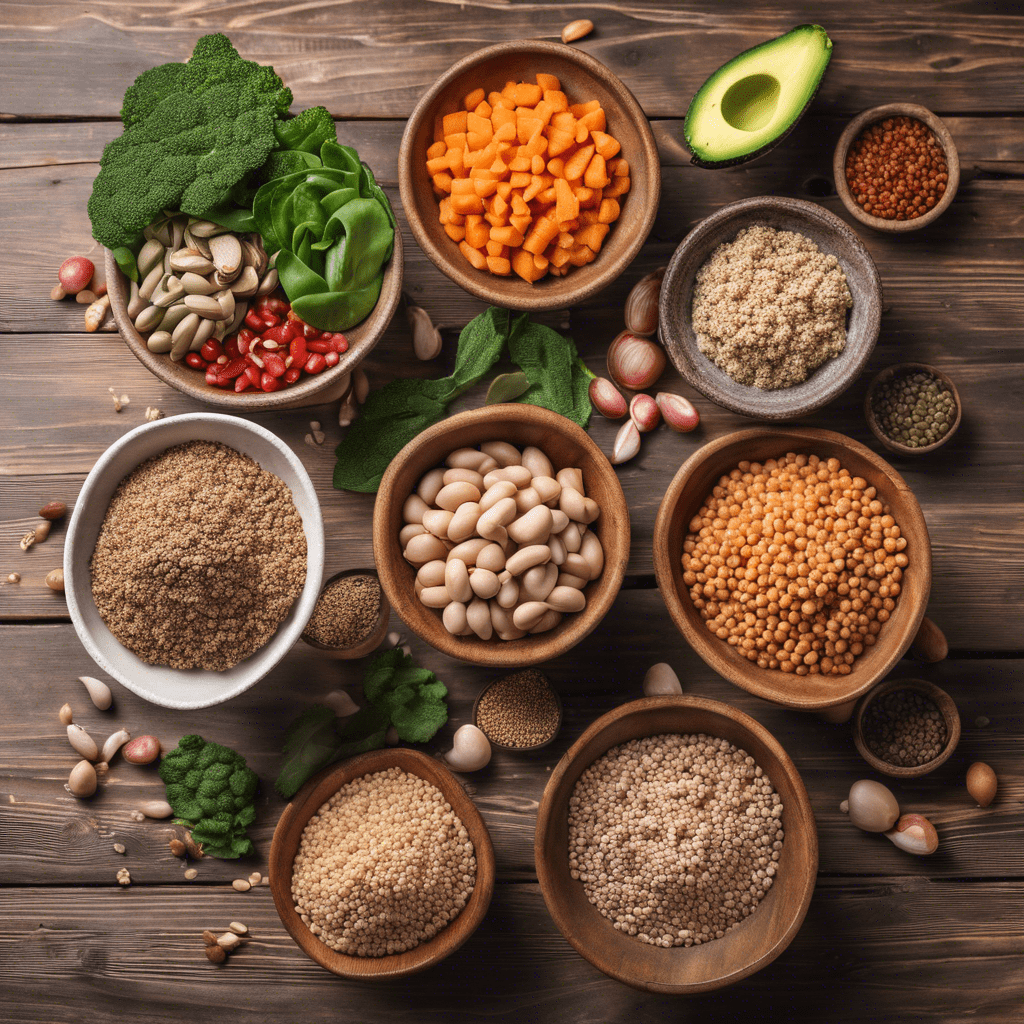The Fountain of Youth on Your Plate?
Could the secret to healthy aging be as simple as putting more plants on your plate? A groundbreaking new study suggests that for women, favoring plant-based protein sources over meat and animal products may be key to staying vibrant and disease-free well into your later years. The findings unveil a potential fountain of youth in the produce aisle and bulk bins.
For decades, we’ve heard about the importance of getting enough protein, but little has been said about where that protein comes from. This research reveals that protein sources are not created equal when it comes to longevity. By making plant proteins like beans, nuts, and whole grains the stars of your diet, you may be able to keep chronic illnesses like heart disease, cancer, and diabetes at bay while preserving physical and cognitive function into old age.
The research serves as a wake-up call about the impact our food choices today can have on our quality of life down the road. At a time when rates of chronic disease are soaring, these results point to a simple dietary shift that could keep us healthier as we get older. It’s food for thought that could reshape nutritional guidelines and preventative care strategies in the years ahead.
Decades of Data from Dedicated Nurses
The eye-opening findings are the result of the Harvard-based Nurses’ Health Study, one of the largest and longest-running investigations of women’s health ever undertaken. Launched in 1984, the study followed 121,700 female nurses, aged 38 to 59 at enrollment, for an incredible 32 years.
This was no casual survey – these were dedicated researchers who meticulously tracked their lifestyles and health outcomes over decades. Every four years, the nurses filled out detailed questionnaires about their eating habits, allowing researchers to estimate their intake of specific foods and nutrients. Career medical professionals, the participants entered the study in excellent mental and physical health.
By comparing the dietary patterns of those who remained free of 11 major chronic illnesses and maintained physical and cognitive abilities with those who didn’t, researchers were able to isolate key factors that promoted healthy aging. Their rigorous methodology is a large part of what makes this study’s conclusions so powerful.
Combing through over three decades’ worth of data, the researchers categorized protein sources into two groups: plant proteins like beans, breads, nuts, and pastas, and animal proteins like red meat, poultry, fish, eggs, and dairy. They then analyzed how intake levels of each type of protein were associated with health outcomes decades later.
The results were striking. But before we examine the findings, it’s important to understand that this study alone doesn’t establish a direct cause-and-effect relationship. As an observational study, it can only detect links between dietary patterns and health outcomes over time. However, the sheer size of the study population and lengthy follow-up period gives considerable weight to the conclusions. And the biological mechanisms suggested by the data make the findings all the more compelling.

Surprising Findings on Longevity
The revelations from the Nurses’ Health Study data were utterly astonishing. As the researchers analyzed decades worth of dietary information and health outcomes, a clear pattern materialized – the more plant-based protein sources featured in the diet, the better the odds of enjoying a vibrant, disease-free old age.
The Power of Plants
Women who ate the most protein from vegetation like beans, lentils, nuts, whole grains, and even pastas and breads were a remarkable 46% more likely to reach age 70 without developing any of the major chronic diseases tracked. This included heart disease, cancer, diabetes, as well as declines in physical and cognitive capabilities that can rob the elderly of their independence.
Just pause and let that statistic sink in – by making plant proteins a staple rather than an afterthought, middle-aged women nearly doubled their chances of staying healthy for their entire third act of life. No pills, surgery, or controversial treatment required – simply letting nutrient-rich plants take center stage on their plates.
The study defined good health as being free of cancer, cardiovascular disease, diabetes, Parkinson’s, multiple sclerosis, and any declines in memory or physical function like gripping, walking, or other daily tasks. Achieving that wellbeing trifecta with something as simple and delicious as plant proteins is an outcome we should all be rooting for.
The Drawbacks of Meat and Dairy
In stark contrast, the data showed that the more women relied on protein from animal-derived foods like beef, pork, poultry, eggs, and dairy, the more likely they were to develop chronic illnesses or lose physical and mental capacities as they aged. For every 10% increase in calories from animal proteins, odds of reaching age 70 in good health declined by a sobering 6%.
While this may not sound like a huge drop percentage-wise, consider the massive toll those chronic diseases take in terms of decreasing quality of life, exponentially driving up healthcare costs, and increasing mortality rates. Even a modest reduction in risk could have an enormous positive impact when projected across entire populations.
So while plant proteins were handshaking women into their golden years as the picture of health, animal proteins appeared to be ushering in infirmity, disability, and disease. But why?
Under the Scientific Microscope
The researchers examined several potential biological mechanisms that could explain the contrasting effects of the two protein sources on aging. And the differences were stark:
For the plant protein consumers, the scientists detected significantly lower levels of unhealthy biomarkers like:
- Bad LDL cholesterol
- C-reactive protein (a inflammatory marker)
- Blood sugar levels
- Blood pressure
They also had higher levels of good proteins like sex hormone binding globulin, which reduces cancer risk, and better insulin sensitivity to regulate blood sugar.
Contrast that with the women who favored animal proteins, who exhibited:
- Higher LDL and total cholesterol
- Increased levels of insulin-like growth factor 1, which is linked to cancer cell growth
- Elevated blood sugar, insulin resistance, and inflammation
- Generally poorer regulation of metabolic health
Clearly, the ramifications of our dietary protein choices extend far below the surface level, orchestrating a cascade of biological impacts that can ultimately mean the difference between graceful aging and chronic infirmities.
Food for Thought on Mental Health
But it wasn’t just physical health that plant proteins seemed to bolster – the data also revealed a compelling link to preserving cognitive function and psychological wellbeing in later life. While the researchers didn’t go into full detail on this connection, they noted that plant protein intake was “more closely related to maintaining good mental health” compared to animal proteins.
This meshes with mounting evidence that a diet rich in whole plant foods can nourish the brain by providing antioxidants, healthy fats, fiber, vitamins, and minerals in their most bioavailable forms. On the flip side, regularly consuming animal proteins laced with inflammatory compounds and saturated fats may increase risks of cognitive decline, dementia, and depression.
With mental health challenges being a growing issue for older adults, the prospect of protecting cognitive abilities and emotional resilience through something as simple as dietary choices could be game-changing on both an individual and societal level.
So whether you’re looking at physiological factors, chronic disease risks, or the all-important mental and emotional dimensions, the evidence is piling up that favoring plant proteins is a wise investment in healthy aging. When it comes to longevity, it seems we’d all be wise to let plants pull their weight on our plates.
